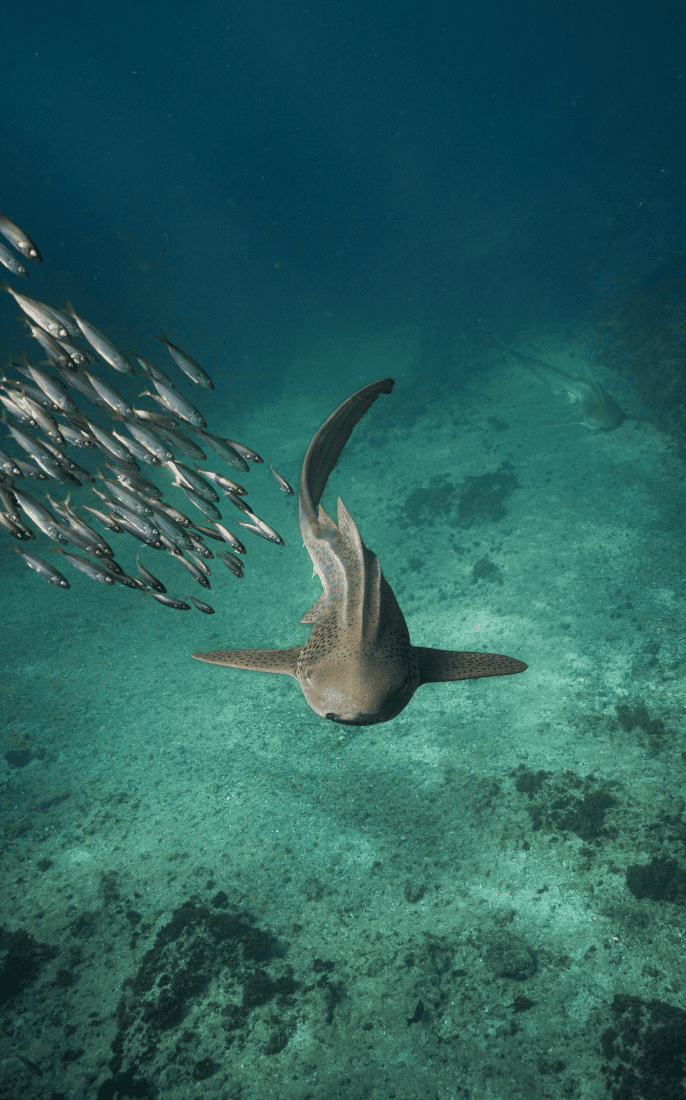

Zebra Shark
The zebra shark is a fascinating and visually striking marine species known for its unique appearance and docile nature. Native to the warm, tropical waters of the Indo-Pacific region, these sharks are most commonly found near coral reefs, sandy flats, and rocky seabeds at depths of up to 60 meters. Their name derives from the zebra-like stripes that young sharks display, which fade into a pattern of spots as they mature, giving them a leopard-like appearance in adulthood.
Life in the Water
Zebra sharks are primarily nocturnal and spend most of their time resting motionlessly on the ocean floor during the day. Their slender, flexible bodies and elongated tails allow them to navigate narrow crevices in coral reefs as they hunt for food. These sharks primarily feed on mollusks, crustaceans, and small fish, using their powerful jaws and small, rounded teeth to crush hard shells. They are also known for their remarkable ability to wriggle into tight spaces to extract hidden prey.
Despite their size, which can reach up to 3.5 meters in length, zebra sharks are not aggressive toward humans. Divers often encounter them resting peacefully on the seafloor or slowly swimming along the reef, making them a favorite subject for underwater photographers and marine enthusiasts.
Ecological Role
Zebra sharks play a vital role in maintaining the health of coral reef ecosystems. By preying on crustaceans and other reef inhabitants, they help control populations and maintain the balance within their environment. Their slow movements and relaxed nature also make them important indicators of reef health, as they tend to inhabit undisturbed and thriving reef systems.
Reproduction
Zebra sharks are oviparous, meaning they lay eggs rather than giving live birth. Females deposit large, spiral-shaped eggs on the seafloor, anchoring them to stable structures like rocks or coral. The eggs are often called "mermaid’s purses" and take several months to hatch. Once hatched, the juveniles, with their striking zebra stripes, quickly adapt to life in the reef, using their coloration to camouflage against predators.
Conservation Status
Although zebra sharks are not as heavily threatened as some other shark species, they are still vulnerable due to habitat destruction, overfishing, and the demand for shark fins. Coral reef degradation caused by climate change also impacts their primary habitat. Conservation efforts, such as marine protected areas and education about sustainable fishing practices, are crucial to ensuring the survival of zebra sharks in the wild.
Fun Fact
Zebra sharks have the remarkable ability to regenerate damaged fins, making them a subject of interest for scientific research on regeneration and healing. Their gentle demeanor and distinctive appearance make them a popular species in aquariums, where they serve as ambassadors for ocean conservation.
The zebra shark is not just a captivating marine predator but also a crucial player in its underwater ecosystem, deserving admiration and protection.

